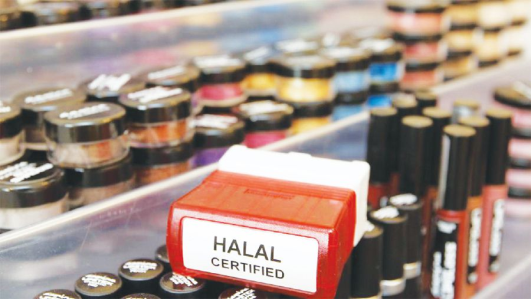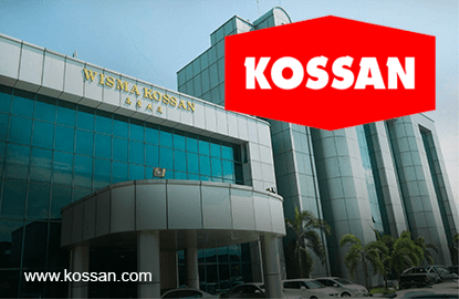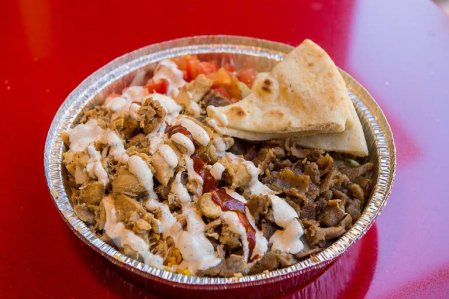Industry Updates

HalalChain, HalalTrail, HealthFX: Blockchain, IoT and cryptocurrencies for halal supply chains have arrived
Posted by DagangHalal Sdn Bhd on 25 Jun 2018
Cryptocurrencies like Bitcoin and Ethereum grab the headlines but more recently, the platform they’re based on has begun showing its potential for more down-to-earth applications for the halal industry.
An encrypted ledger database, blockchain is almost impossible to hack, making its records, or blocks, permanently verifiable. As a decentralised system with no single owner, any retroactive changes to a record must be verified by the majority of potentially thousands of “nodes” or members in a chain. Put simply, it is technology that is secure by design, giving businesses and consumers a means to monitor supply chains with confidence that data has not been altered.
HALALCHAIN
Blockchain's benefits are becoming increasingly apparent to halal industry entrepreneurs like Dr Sulaiman Liu, co-founder of the recently launched HalalChain, a platform that uses blockchain to trace and track halal products. The platform is developed by Dubai-based HLC Technologies.
“The global halal industry is huge with great potential, but on the traceability side, so far there are no standardised regulatory guidelines for raw materials,” Liu told Salaam Gateway. “It is very difficult to trace back all these raw materials, especially from suppliers in non-Muslim countries.”
What HalalChain is trying to do is bridge that gap. It requires each element in a product’s supply chain to implement Liu’s solution so that end-consumers can check if all the raw materials in that product are halal or not.
Using Internet of Things (IoT) devices such as radio frequency identification (RFID) sensors and smart cameras with artificial intelligence to track and monitor each step of the upstream supply chain, the start-up aims to automatically gather and upload product information with no manual intervention, and continuously record it on blockchain. Any data uploaded through the devices cannot be modified or deleted by any party.
By doing so, Liu said HLC’s platform can improve on the traditional system of halal inspections that sees auditors conducting annual visits to food suppliers and processors. The non-alterable records can be provided to regulators, manufacturers, consumers and auditors who “will have a better idea of what’s going on” in the supply chain.
“These inspectors will visit a site each year, but doing so is time-inefficient and we believe the data they gather are not sufficient to safeguard a product’s halal-ness. Nobody knows what is happening there during the 364 days between audits,” said Liu.
HalalChain will be responsible for the costs of purchase, installation, operation and maintenance of the tracking technology. To fund it, it had earlier laid out plans for an Initial Coin Offering (ICO) in a published white paper but those plans have neither been updated nor finalised.
For now, it will charge its customers a fraction of the sale price of each product. For example, in Malaysia, one of the company’s launch markets, a certified-halal mineral water that retails for two Malaysian ringgit per bottle would attract a cost of one sen per unit to pay for the service, Liu explained.
“This does no harm to the producers or the consumers,” he added. “The cost can be seen as goodwill from the brand to show end-consumers that they will get better transparency and information on the product. If you have more confidence, you can consume more or consume faster. This value-added part has been incorporated into the selling price, but I don’t think there will be an additional price charged by adopting our solution.”
The system was launched on May 14, and is currently undergoing testing with Al Kabeer Group, a Dubai-based food processor, and Perwiratama Group, an Indonesian poultry production company.
HALALTRAIL
In the United Kingdom, another halal traceability company is preparing to begin field trials on its new blockchain service. By tagging animals as they go through life on the farm, HalalTrail is able not only to register how they are slaughtered, but also how they have been reared.
“Right now, the halal market is fragmented in the sense that there isn’t one process across every jurisdiction whereby the consumer can transparently see how their food has come through the supply chain,” Rizwan Desai, HalalTrail’s chief marketing officer, told Salaam Gateway.
“We are going to start a pilot at the end of June to track chickens and lambs at farms in the UK. We will register how the animals were slaughtered, who they were slaughtered by, even the Islamic school of thought that was behind the slaughter.”
Unlike HalalChain’s fully automated system, HalalTrail relies on the manual scanning of QR codes on the tags attached to the animals. During their lives, inputs like feed and medicines are registered against the animals’ individual records. After slaughter, the monitoring continues to allow the end-consumer to gather a detailed picture of the food they are buying, by using the HalalTrail app.
“The consumer can scan a QR code on the label, which will return the entire history of that meat. He can see the breed, the feed it’s eaten, its vaccinations, antibiotics, how long it has been in transport, how fresh it is—even the temperature when it was being transported,” Desai said.
HALAL SLOW TO BLOCKCHAIN
While blockchain traceability is a novel solution for the halal industry, it is now already beyond its infancy for other supply chains.
TE-Food, the Hungarian company that provided the technology for HalalTrail, already has over 6,000 customers for its trace-and-track platform, including Asian giants like Aeon, Lotte Mart and CP Group. The UK start-up is its first halal client.
“We were interested in this opportunity because halal food is a huge market, and the blockchain can serve as a global verification ledger for authenticity,” Marton Ven, TE-Food’s chief marketing officer, told Salaam Gateway.
“We started to map the processes for the halal food chain and modified our own processes [for non-halal food] to fit in with that requirement. Our goal is to put together a reference for farm-to-table fresh-food traceability for halal food to make it a system that can be used globally.”
BLOCKCHAIN USE FOR HALAL PHARMA
In Singapore, Varun Panjwani is preparing for the launch of a blockchain ledger to track the provenance of pharmaceuticals, including halal medicines, as part of a wide-ranging healthcare platform linking patients, healthcare providers and insurance companies in Southeast Asia.
Over a two-year roadmap beginning in July, Panjwani’s HealthFX will also release a cryptocurrency to pay for healthcare charges—again using blockchain technology—provide a hospital rating and review service and combine all elements into a smartphone app for consumers and healthcare professionals.
“The problem with the pharmaceuticals market, like anything which involves generics, parallel imports and unreliable sources, is that you have the issue of not really knowing if the product you are looking at buying is the same as what you will purchase,” Panjwani told Salaam Gateway.
"Similarly with halal, it goes not just to the quality of the product, but also to belief systems, so that Muslims are able to consume it. For Muslims, this is equally as important because some in the community feel it would be better not to take any medicine at all than to take drugs that could be non-halal.”
When a pharmaceutical is certified halal by any authority, the manufacturer will record this status on the HealthFX chain, likewise any additions to it at later links in the supply chain, such as delivery systems like capsules and jellies which might change its halal status.
Healthcare providers with access to the platform will be able to track the journey the product has made to market. This way, any missing links or anomalies can be identified and investigated.
By using an immutable blockchain ledger, Panjwani said, traceability and transparency come to the forefront by encouraging good practices in the supply chain.
“If we know through a blockchain record that the ingredients received from a factory are sufficient to output 1,000 pills, and yet if 2,000 pills are being distributed, immediately there is a clear indication that there is a discrepancy from the factory,” said Panjwani.
“Or if the manufacturer is producing product commensurate to the ingredients but the retailer is selling twice as many, you can see there may be a problem. Aside from potentially being unsafe, adulterated [halal] products may be tainted with non-halal substances.”
Moreover, because blockchain is so secure, personal records can be stored on it, such as medical history. This is a boon for both medical travellers who need access to their entire records, and health insurance companies that seek an immutable catalogue of pre-existing conditions that they can refer to.
“What we want to do is bring that transparency onto the blockchain, together with immutability,” said Panjwani.
“If there is anything like a fraud, it is available to see on the blockchain. And because of the technology that’s used, it’s close to impossible to change.”
(Reporting by Richard Whitehead; Editing by Emmy Abdul Alim [email protected])
Source: (Saalam Getaway, 20 June 2018)






































